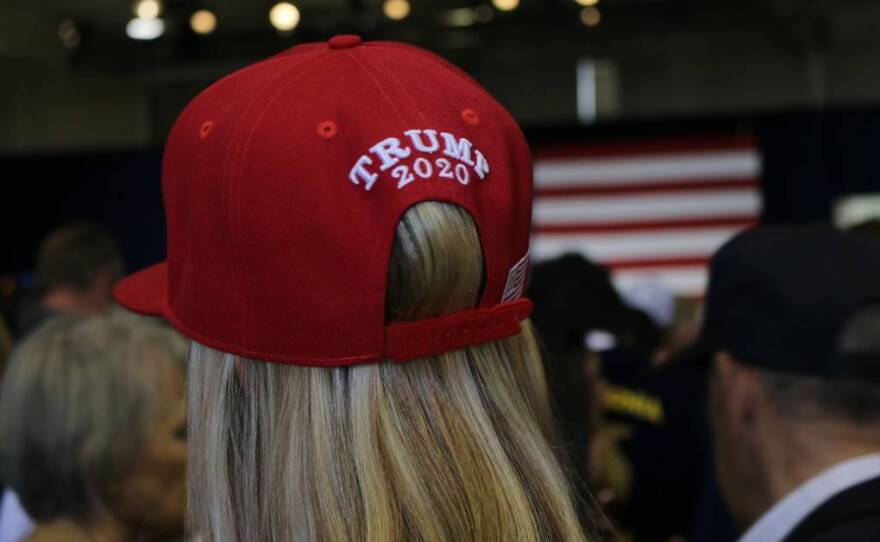At a recent rally in Pennsylvania, President Trump appealed directly to the voting bloc he knows he needs.
“Suburban women, will you please like me?" he pleaded as the crowd cheered. "I saved your damn neighborhood!"
Trump was referring to his efforts to dismantle an Obama-era federal rule meant to combat housing segregation. Trump said he's helping to preserve "once thriving" suburbs and help homeowners, both of which are thinly-veiled ways to play up racial and economic divisions.
At the request of many great Americans who live in the Suburbs, and others, I am studying the AFFH housing regulation that is having a devastating impact on these once thriving Suburban areas. Corrupt Joe Biden wants to make them MUCH WORSE. Not fair to homeowners, I may END!
— Donald J. Trump (@realDonaldTrump) July 1, 2020
But Bonnie Keller, a 64-year-old white woman who lives in a suburban area in Fresno, said she's not swayed by Trump's argument. Keller said she’s Christian and leans Republican, but Trump’s crude demeanor turns her off. She didn’t vote for him in 2016 and won’t vote for him now.
“I just wasn't impressed from the get go," Keller said. "That is just my complete distaste of his behavior. It is not professional in my book. He is not a leader who has qualities I respect and admire.”
In 2016, a lot of suburban, white women supported Trump. Exit polls from 2016 show that Trump won 49% of suburban voters, and 52% of all votes cast by white women. Historically, white, suburban women have supported the Republican nominee — something former Secretary of State Hillary Clinton battled against four years ago — which helps explain why Trump is so desperate to get those voters now.
But the numbers look different this time around.
“The polling is showing that Trump is losing support among women, period," said Mindy Romero, director of the Center for Inclusive Democracy at University of Southern California. “Particularly when it comes to his demeanor. Some of the things that he said, the actions he’s taken with regard to the coronavirus, with race relations.”
State and national surveys back Romero's assertion. A September poll from the Public Policy Institute of California found that 65% of likely women voters support Democrat Joe Biden. And a recent national poll conducted for ABC and the Washington Post found that among likely women voters, 59% support Biden. That result includes 62% of all suburban women, and 54% of suburban white women. Other polls find similar results.
Still, Trump thinks he’s tapped into what women voters are looking for. At the end of the day, he thinks that could overshadow any issues they have with his personality.
"You know what women want? More than anything else? They want safety, security and they want to be able to have their houses," Trump said at a recent rally in North Carolina.
That message resonated with Chico resident Jenni Schaeffer, who is 56 years old, white and lives alone. She said Trump is a narcissist and drives her crazy. But she’s also worried about her safety and is planning to get a concealed carry permit.
“When it comes to policies and stuff, I don't want someone taking my guns away," Schaeffer said. "As a woman, that's my only equalizer. And I think Biden and Harris will take that away from me.”
Schaeffer is also strongly anti-abortion, another policy she aligns with Trump on. So, while she doesn’t like his tweets or the things he says, she’ll likely vote to give him a second term. And as the election draws closer, Trump is hoping there are more women like her who back his policies, if not his persona.






